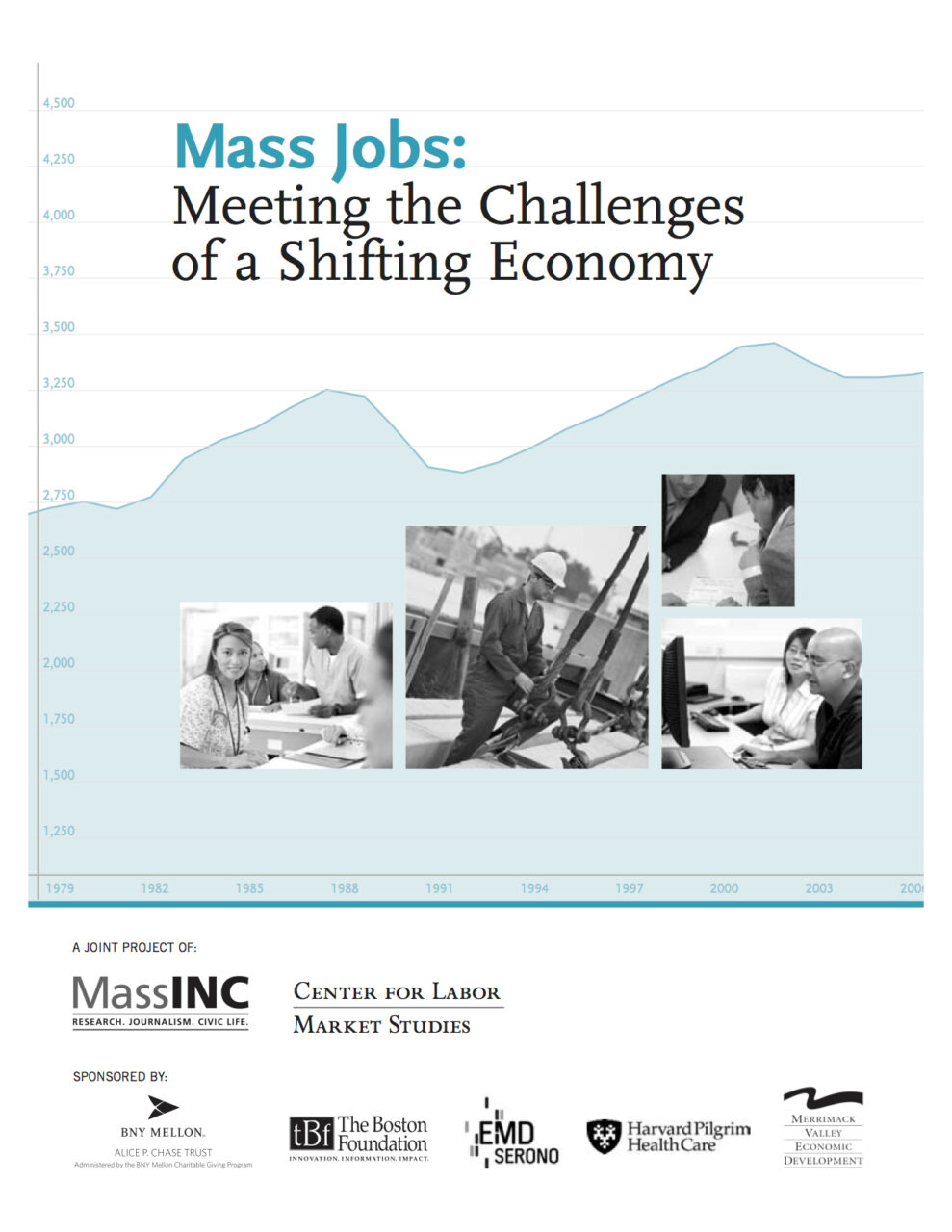The Massachusetts economy is the envy of many other states. It consistently ranks among the top in measures of New Economy success. We rank near the top of the nation in our level of labor productivity and have outpaced the nation in recent years in the rate of growth (11.5% versus 10.6%). We have the most educated workforce in the nation and we score near the top in terms of knowledge jobs and innovation capacity.
Yet, Massachusetts faces a number of challenges. We are still down about 100,000 jobs from the peak of the business cycle in 2001 and ranked next to last in job creation between 2001 and 2006, besting only Michigan. Given that Massachusetts is an older state that is already highly developed, it makes sense that Massachusetts is not a leader in job creation. However, the fact that Massachusetts trailed its 10 economic competitor states and each of the New England states in job creation in recent years requires much more debate and discussion. This research documents how the job losses have contributed to large numbers of residents moving out of our state, seeking better opportunities elsewhere.
Despite a net job loss, some sectors added new positions, and in doing so, are changing the composition of the Massachusetts economy. Our state’s economy continues to shift toward knowledge-based industries. The economy that is emerging might be described as a “boutique economy.” It is becoming highly specialized with great rewards for those with the requisite levels of education and skills and few options for everyone else. This trend is occurring nationally as the U.S. economy is reshaped by the global economy and Massachusetts is at the leading edge in this transition.
The long-term consequences of a boutique economy, especially for middle-class families, are not yet fully known. The report lays out four principles that could form an economic vision and agenda to be shared by the Administration, Legislature, business community, and labor community. The recommendations are: 1) develop a long-term strategy that includes creation of export jobs, 2) better workforce training to fill the many current vacancies, 3) improvement to the business climate, and 4) a regional approach to meet varying needs across the state. We hope this research sparks a renewed urgency to make certain that all residents have the education and skills to benefit from the new job opportunities.
